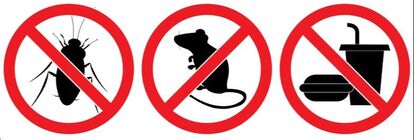How you go about storing your pet’s food can make a big difference on the quality and freshness of the food you set before your pet each day. Follow these handy guidelines to help you better store your pet’s food.
- Bags of dry cat or dog’s food should be stored in a cool, dry environment that is under 100°F (38°C). This will help prevent the destruction of vitamins or the oxidation of fats.
- Pet food retains its original flavour best when it is stored in its original bag. This helps provide a fat barrier. If you’re worried about ants or bugs, you can store the original bag in a large leftover food-grade metal or glass container.
- Storing pet food in plastic contains may impart a plastic odour and taste to the food.
- Food that has been stored at a temperature of 120°F (48°C) for longer than 48 hours starts to degrade and its vitamins destroyed.
- Storing your cat or dog’s food in uncontrolled environments like the garage or the outdoors is not advised as the food will go bad. Pet food should always be stored in dry, cool environments.
- Pet food should be stored above ground level to reduce potential infestation.
- If not opened yet, pet food can be placed in a dry place where the temperature is between 50-100°F.
- Cat and dog food should not be frozen as this will change the texture and taste of the food.
- Open cans of dog and cat food should be stored in the fridge to help retain moisture and minimise exposure to the air and odours.
- Always refer to the best before date if you want to know whether or not an unopened bag of pet food is still good.
- When feeding your pet dry cat or dog food, feed them in an area that is cool and dry and away from direct sunlight. This will protect the food from be subjected to contamination by insects and direct sunlight. Always remember to wash your dog or cat’s bowl before each feeding session.
- Empty your pet’s bowl within 4 hours if the ambient temperature is above 50°F to prevent food poisoning and upset stomach caused by spoiled food.
Top tip:
When pests realize there is no food for them, they will gradually leave.
Don't let them in. Don't feed them. Report unusual pest activity to the office.
Don't let them in. Don't feed them. Report unusual pest activity to the office.

